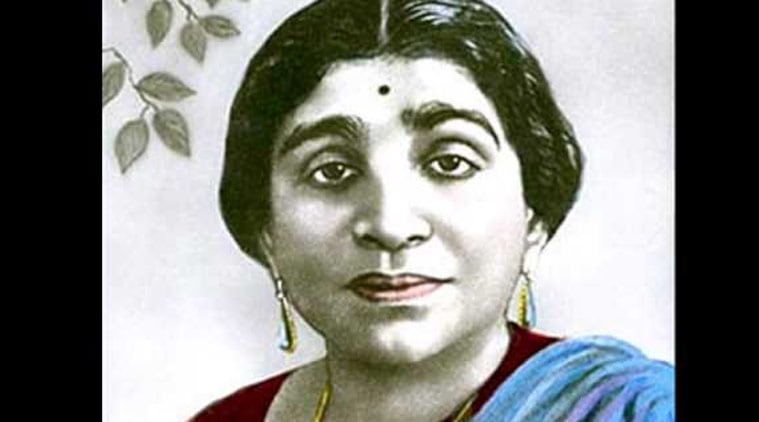Published in the Indian Express:
A Book of One's Own
To represent the immense variety of texts produced by Indian women over the last 2,000 years — in 350-odd pages — is no mean feat.
Unbound: 2,000 Years of Indian Women’s Writing
Ed: Annie Zaidi
Publisher: Aleph Book Company
Pages: 372
Price: Rs 595
First things first: in assembling this anthology, Annie Zaidi has accomplished a mammoth task. To represent the immense variety of texts produced by Indian women over the last 2,000 years — in 350-odd pages — is no mean feat.
As with any anthology, both its pleasures and its perils lie in personal choice: the editor’s love of a particular piece will eventually determine what makes the cut. With a project as ambitious as this one, there are also all sorts of less personal variables to consider. Should it include anonymous folk literature in a feminine voice? Does “Indian” include writers who later became Pakistani or Bangladeshi citizens? Does it include diaspora writers? “Indian” wasn’t the only word that Zaidi had to define: “writer”, she decided, couldn’t include columnists, speech-writers and letter-writers, and for 20th century writers, they needed to have “a body of work”. When it came to genre, though, Zaidi cast her net wide, including excerpts from novels, stories, non-fiction, essays, speeches, travelogues, memoirs and plays. A poet herself, she gives a lot of space to poems. A different editor might have decided differently. But Zaidi’s careful introduction lays out her criteria with such scrupulous honesty that disagreements seem churlish.
In any case, it is indisputable that this volume contains many more gems than duds, and a reader dipping into it at random will net enough unexpected pleasures. Some are famous names you have somehow never read: for me, these included Kamala Markandeya, the surprisingly vivid Cornelia Sorabji, Sarojini Naidu (represented not by her poetry but by a superb speech) and Bhakti poets like Bahinabai and Akka Mahadevi. Others I had never heard of, like Vibhavari Shirurkar (1905-2001), whose lovely excerpt from Kharemaster has a husband wooing his teenaged wife, or Pratibha Ray, whose Yagnaseni is a provocative Oriya retelling of the Mahabharata in Draupadi’s voice. There are several well-known writers I admire — Vaidehi, with one of her most brilliant stories, 'Gulabi Talkies', about the coming of the cinema to a small town; Krishna Sobti, with an extract from Surajmukhi Andhere Ke, which I wouldn’t have chosen, but which is rare for its frank, intimate depiction of sex; Mrinal Pande, whose Bibbo is a delightfully sardonic tale of an upper class couple’s domestic help; or Easterine Kire, whose excerpt from Bitter Wormwood offers a sharp, sweet sense of what it was to hear about Gandhi’s death in Nagaland.
The question whether such an anthology deserves to exist is answerable in two ways. One is historical: given the traditional disadvantages Indian women have battled in terms of even gaining literacy, it seems worth mapping what they have concerned themselves with when in the privileged position of publishing books. One hopes that the ongoing transformation of women’s lives (and of publishing) will make such a project seem ridiculously broad, 50 years from now. The second answer is that women’s writing is writing by women — it need not be about them. This could have been the answer provided by this book, and to some extent it is: the selections reveal that women, even when constrained by domesticity, embrace the world. It is here, though, that I must strike a note of disagreement with the organising scheme, which seems to give “female” thematics more space than gender-neutral ones.
Still, some of her sections hold together beautifully, like ‘Food’, ‘Children’, and ‘Ends’ (which should be ‘Bodies’, since that is what ends in almost every piece). Often, though, the themes feel unnecessarily constrained. Why, for instance, must we separate ‘Spiritual Love’ from ‘Secular Love’ when our traditions of poetic writing, especially the Sufi and Bhakti poets who dominate the ‘Spiritual’ section, have never done so? Why is ‘Secular Love’ necessarily outside ‘Marriage’, with the latter so exclusively given over to depressing accounts of widowhood, marital angst, patriarchal in-laws? Conversely, some section heads are so broadly metaphorical — ‘Identity’, ‘Battles’, or ‘Journeys’ — that many pieces seem switchable. Iravati Karve’s brilliant unpacking of the Khandava fire could be in ‘Myth and Fable’ as much as ‘Battles’. Mahadevi Varma’s underwhelming piece on a Chinese peddler in ‘Journeys’ seems rather statically about ‘Identity’ to me. I could go on.
My other problem is that in trying to fit in over 100 authors, each is allotted barely three pages. Poems benefit, while stories and essays seem cruelly cut short. I’d also have liked the date of original publication under each piece: an index isn’t the same thing. Unbound is a labour of love, and a tantalising glimpse of wonderful writers we must read. But for an introduction that offers both authoritative critical heft and delightful biographical detail, I would still return to the two-volume Women Writing in India, edited by Susie Tharu and K Lalita (1991-93) and thankfully, still in print.


No comments:
Post a Comment